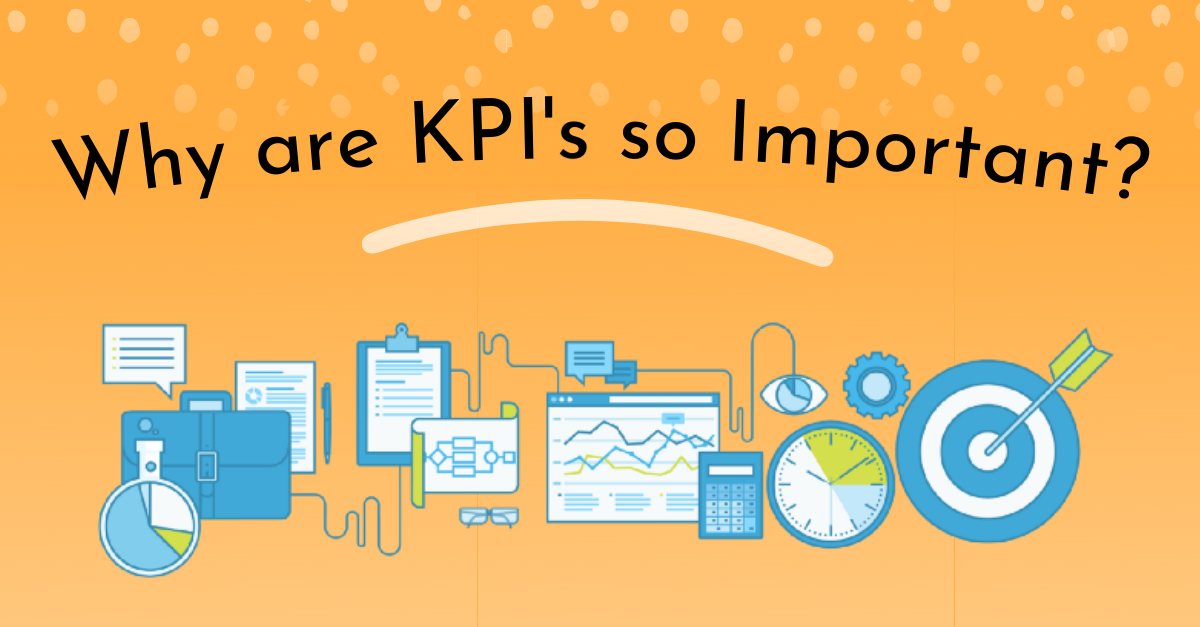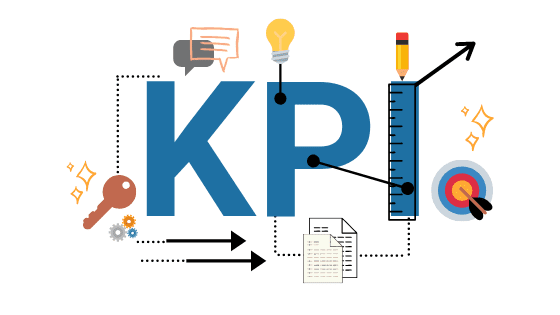Key Performance Indicators are metrics used to measure a company’s performance compared to the target. These metrics (or indices) are quantifiable and serve as an indicator or yardstick to measure how well the company has done.
Key performance indicators (KPIs) measure a company’s success with its goals and objectives or with similar companies in the industry. KPIs vary between companies and between industries, depending on performance criteria.
When a company uses Key Performance Indicators, it helps it know how healthy the company is in terms of performance. For instance, when a doctor checks a patient’s blood pressure or heartbeat rate, it informs them of how healthy the patient is and how they can perform day-to-day activities.
Whatever tests a doctor carries out help them prescribe what’s needed for the patient. These things are key and important in the same way KPIs are important indicators of a company’s wellbeing. If businesses in Nigeria can include KPIs in their performance review, it will skyrocket the country’s economy.
There are different types of key performance indicators. The most common type is financial, and one example is sales. For example, a company can have a target to sell 1000 items, but it sold 970 items. This may indicate that the sales department did not perform well enough, or there could be something else to investigate.
Table of Contents
Types of KPIs
KPIs are largely categorized into quantitative and qualitative. You could also categorize them into Financial and non-financial KPIs. However, there are nine types of Key Performance Indicators.
-
Quantitative KPIs
These KPIs are the most common and straightforward. It is all about the numbers. KPIs that are numeric are Quantitative. e.g., total units produced.
-
Quantitative KPIs
Numbers do not measure them. They are usually characteristic or opinion based. They focus on the experience and feelings of people, even if they have some quantitative data—e.g., Customer reviews.
-
Leading Indicators
They are forward-looking and are used to predict future outcomes. e.g., when there is an acquisition, the number of assets can be an indicator.
-
Lagging Indicators
They are backward-looking. It is used to check if a past decision was favorable or not. E.g. employing additional sales representatives helped to achieve the goal.
-
Input Indicators
To know what resources are needed for a project, the input Indicators are of help. For example, they ask, how much cash is available? Whatever is available determines what is put into the project.
-
Process Indicators
They are used to measure how well a process is performing. For example, how quickly does customer support respond to customer complaints? They are used to improve efficiency.
-
Output Indicators
They measure how well a business has performed—profit or revenue. You can’t change them.
-
Practical Indicators
Measure the effect of some processes on the company. For instance, the effects of how a construction company handles projects. They are peculiar to the companies that use them.
-
Directional Indicators
These indicators measure trends peculiar to the company. They help in making informed decisions.
They are tied to the various departments in the company. It doesn’t have to be financial. Although the most common, other areas such as customer or employee-focused, KPIs also contribute to the health of a company.
Read Also: How to conduct a performance review for employees in your business
Why are Key Performance Indicators Important?

Why are KPIs Important?
Key Performance Indicators (KPIs) or Key Success Indicators (KSIs) are important because they help businesses track performance and plan for the future. The target performance may vary depending on the company and how they use the information. KPIs also help determine a company’s achievements (financial, operational, or strategic) when compared to similar companies.
The indicators can contribute positively to Nigerian businesses by tracking the growth of companies and boosting the countries economy.
-
Planning
Businesses need Key Performance Indicators to plan. When a company sets a target for an employee or team, their performance is tied to some KPIs. Without KPIs, there are no targets. KPIs make the goal or objective clear.
Goals and objectives should be SMART – Specific, Measurable, Achievable, Realistic, and Time-bound.
KPIs are what make the company’s goals SMART. For example, the goal of a company is to increase profit by 20% in 2022. It is what they have planned to do. The Key Performance Indicators tied to this goal were, of course, net profit and revenue.
Specifically, the goal is 20%, but how do you measure it? With the Key Performance Indicator – Net Profit. They check the profit in the previous year and compare it with this year’s profit. They can also use the revenue from sales to get it by deducting all relevant expenses.
The point of this is to say that planning cannot be complete without some KPIs. Therefore, businesses need Key Performance Indicators to plan effectively.
-
Monitoring performance
After planning, there’s, of course, a need to follow through. You should monitor the performance to ensure the company stays on track. Key Performance Indicators help you track your company’s goals and objectives. For example, when you have more customers, you can tell it will lead to more revenue.
You can achieve your goals faster when you use the right KPIs and measure them well. The best way to monitor the performance and health of a business is when there are metrics to use.
Read Also: Business Growth Strategies for Small Businesses in Nigeria
-
Assessment
With Key Performance Indicators, you can tell who is responsible for what. For example, when customers reduce, you can tell there’s something wrong in the customer care unit. When you use KPIs, you can understand the performance of those responsible and check the health of your business. The feedback makes it possible to make critical adjustments to your execution and thus, helps in achieving the goals faster and easier.
-
Control
When reviewing the Key Performance Indicators, you can always tell if the company is on the right track. If it is not, you know where the problem lies. Key Performance Indicators help to identify excesses or deficits.
Now that you have identified and understood the issues, you can put control measures in place to ensure that these issues don’t repeat themselves or to reduce the threats of those issues.
Don’t forget to subscribe to our newsletter for more business insights.
-
Comparisons
KPIs make it easier to make comparisons. For example, you can always compare the figures from last year with figures from the current year to see if the company has improved. You can also compare your KPIs with related or similar companies to check the growth or ascertain achievements. E.g., the fastest growing bank in Africa.
Read Also: Top 6 Analytical Tools to Track Your Business Growth
-
Decision making
KPIs are important because you can be sure you’re making an informed decision. Decision-making comes easier when you have Key Performance Indicators. For instance, by employing more sales representatives, you look forward to more sales. You made this decision because your sales revenue barely increased compared to the previous year.
Conclusion
Key Performance Indicators (KPIs) are a set of quantifiable measurements used to measure a company’s long-term performance. They are the tools used to measure the financial health of a company.
Businesses need Key Performance Indicators to make informed decisions. In addition, key Performance Indicators answer questions and thus, enhance business operations. Therefore, businesses should take them seriously.
Anyone can do business but people with expanded knowledge become better. This is why you should reach out to us on Whatsapp and gain access to world class advice on business.
About Author
Latest entries
 EntrepreneurMarch 7, 2023Everything You Need to Know About Market Segmentation as an Entrepreneur
EntrepreneurMarch 7, 2023Everything You Need to Know About Market Segmentation as an Entrepreneur CareerFebruary 4, 2023How to Become a Product Manager in Nigeria
CareerFebruary 4, 2023How to Become a Product Manager in Nigeria Business InsightsJanuary 2, 2023Top 5 Effective Business Name Generators to Choose A Business Name
Business InsightsJanuary 2, 2023Top 5 Effective Business Name Generators to Choose A Business Name EntrepreneurNovember 30, 2022How to Start A Music Record Label in Nigeria
EntrepreneurNovember 30, 2022How to Start A Music Record Label in Nigeria

